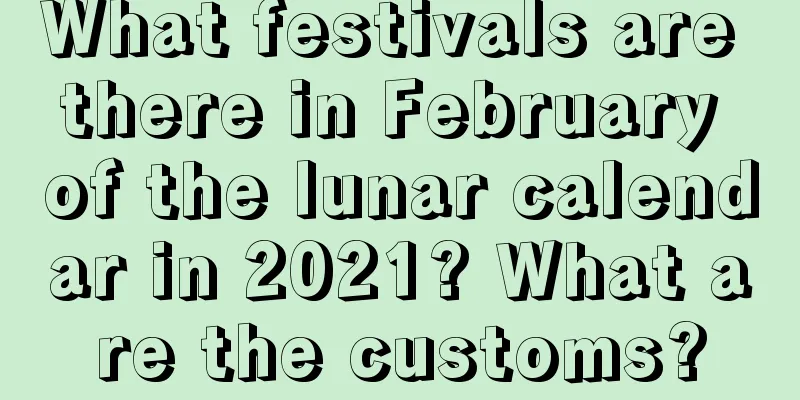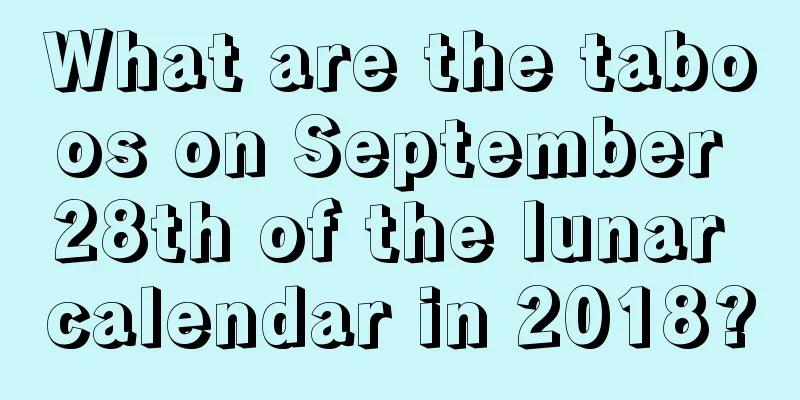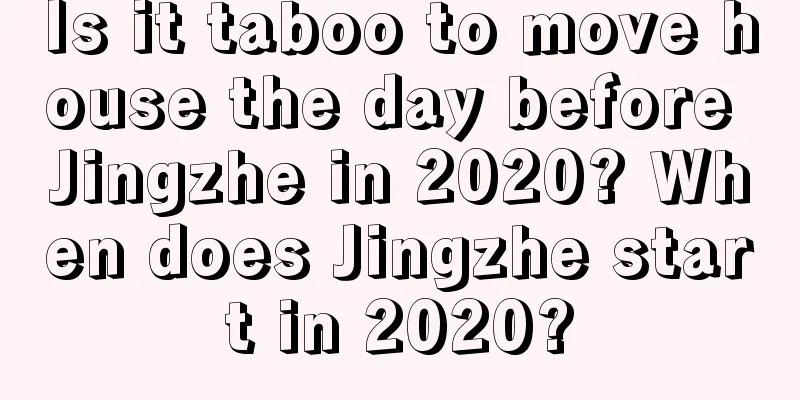What festivals are there in February of the lunar calendar in 2021? What are the customs?

Some festivals are different at different times. So, let’s take a look at what festivals are there in February of the lunar calendar in 2021? Do you know these festivals? A year's plan begins in spring, and almost every day in the first month of the lunar year is a festival. The 2021 first month special topic of Shuimoxiansheng.com lists these traditional Chinese festivals and festival customs for you.What festivals are there in February of the lunar calendar in 2021? Do you know these festivals?The second month of the lunar calendar in 2021 is between March and April of the Gregorian calendar.The specific time of the second month of the lunar calendar in 2021 is: March 13, 2021 to April 11, 2021. All festivals in the second month of the lunar calendar in 2021 are as follows: Lunar February 2: Dragon Raises its Head Dragon Raising its Head (the second day of the second lunar month), also known as the Spring Ploughing Festival, Agricultural Festival, Green Dragon Festival, Spring Dragon Festival, etc., is a traditional Chinese folk festival. "Dragon" refers to the seventh star of the Eastern Azure Dragon among the twenty-eight constellations. At the beginning of the first month of spring every year (when the Big Dipper points to the east), the "Dragon Horn Star" rises from the eastern horizon, so it is called "the Dragon Raising its Head". The day when the Dragon raises its head is at the beginning of the Mao month in mid-spring. "Mao" belongs to the wood element and the hexagram is "Zhen". Nine two is in the mutual Zhen of the Lin hexagram, which means that the dragon has left its latent state and has appeared on the surface, showing its head, which is a sign of growth. In farming culture, "the dragon raising its head" indicates the growth of yang energy, increased rainfall, and the fullness of life of all things, and spring ploughing begins. Since ancient times, people have regarded the Dragon Raising its Head Day as a day to pray for good weather, ward off evil spirits and disasters, and bring good luck and fortune. April 4th in the Gregorian calendar: Qingming Festival Qingming Festival, also known as the outing festival, the Qingming Festival, the March Festival, the ancestor worship festival, etc., is held at the turn of mid-spring and late spring. The Qingming Festival originated from the ancestor worship and spring sacrificial customs in ancient times. It has both natural and humanistic connotations. It is both a natural solar term and a traditional festival. Tomb sweeping and ancestor worship and outings are the two major ritual themes of the Qingming Festival. These two traditional ritual themes have been passed down in China since ancient times and continue to this day. What are the customs of Dragon Raising its Head?1. Worship the community godsFebruary 2 is both the Dragon Raising Head Festival and the birthday of the God of Land. The "Birthday of the God of Land" is also called the "Community Day Festival." 2. Eat dragon food There are certain dietary requirements on February 2nd because people believe in the "power of dragons", so most of the food on this day is named after dragons. Eating spring pancakes is called "eating dragon scales", eating noodles is called "eating dragon whiskers", eating wontons is called "eating dragon eyes", eating dumplings is called "eating dragon ears", cooking noodles and wontons together is called "dragon pearls", and eating scallion pancakes is called "tearing dragon skin". In some places, there is also the custom of eating "dragon eyes", "dragon whiskers", "dragon tongue", "dragon ears", "dragon skin", "dragon seeds", "dragon eggs", as well as spring pancakes and pig heads. 3. Collecting Dragon Qi In the morning at Mao time (between 5 and 7 o'clock), on the first Mao day of Mao month, go out, face east and take a deep breath, this is auspicious. 4. Shaving dragon head It refers to haircutting on the second day of the second lunar month. For children, haircut is called "shaving a happy head". It takes advantage of the auspicious time of the dragon raising its head to bless the children to grow up healthily and become successful when they grow up. For adults, haircut is to bid farewell to the old and welcome the new, hoping to bring good luck and smooth sailing in the new year. Introduction to the customs of Qingming Festival1. Go outingThe Chinese nation has had the custom of outing on Qingming Festival since ancient times. In ancient times, outing was called "Tanchun" or "Xunchun" which means a spring outing, also known as "Tachun". Generally refers to taking a walk in the suburbs in early spring. 2. Flying a kite Kites are also called "paper kites" or "kites". Flying kites is a favorite activity among people during the Qingming Festival. 3. Tomb sweeping and ancestor worship Tomb sweeping on Qingming Festival is also called "tomb sacrifice", which is called "temporary respect" for ancestors. Ancestor sweeping is a way to remember the ancestors, and the custom has a long history. 4. Cockfighting In ancient times, cockfighting was popular during the Qingming Festival. It started from the Qingming Festival and lasted until the summer solstice. The earliest record of cockfighting in China can be found in Zuo Zhuan. |
Recommend
Are people born in the year of Xiaoman in 2018 good? Are you destined to be rich?
New lives are being born all the time in the world...
Is it okay to pray on the sixth day of the first lunar month in 2020? Which hours are auspicious?
Different days are suitable for doing different th...
Can we install a door on October 17th of the lunar calendar in 2021? Is it an auspicious day for Anmen?
There are certain rules and considerations for cho...
What day is the eighth day of the tenth lunar month in 2022? Is it an unlucky day?
We always encounter bad luck. Sometimes it is not ...
What is the sunrise time on the summer solstice in 2019? Is the summer solstice long or short?
The summer solstice marks the beginning of summer ...
What day is the eighth day of the eighth lunar month in 2018? What month and date is it?
Want to know more about the dates in the eighth m...
Is it a good idea to move into new house during the Minor Snow solar term on the fifth day of the tenth lunar month in 2017?
Introduction: Moving is an important matter in our...
Is it a good time to worship ancestors on the 17th day of the fourth lunar month in 2019? Is it auspicious to visit graves on the 17th day of the fourth lunar month?
Introduction: Visiting the graves to worship ances...
Is the 11th day of the eighth lunar month in 2018 a good day? Is it suitable for traveling far away?
Introduction: Before traveling far away, you need ...
What day is it on the 60th day of the 10th lunar month in 2019? Can we pray and burn incense?
When people hold important events, they usually ch...
Can I get married on the 15th day of the 11th lunar month in 2020?
Can I get married on the 15th day of the 11th lun...
What day is September 13th in the lunar calendar 2019? What day is it in the new calendar?
Want to know what day is September 13th in the lu...
Is June 8, 2019 a suitable day to pick up a new car?
June is approaching autumn, and fruits gradually ...
Horoscope query for the 28th day of the first lunar month (March 11) in 2021
What is the constellation on March 11, 2021? Let’s...
Can a funeral be held on the first day of the third lunar month in 2019? Is it an auspicious day for a funeral?
When rural people go to attend a funeral, if someo...









